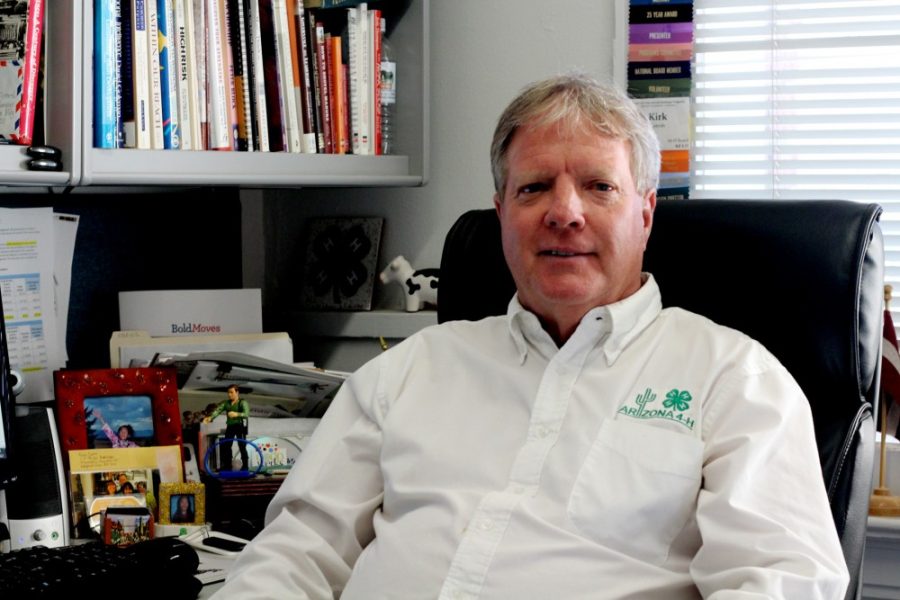Local youth organization Arizona 4-H celebrated its 100th anniversary on Saturday, continuing its legacy of helping young children provide services to their community.
Although Arizona 4-H has been around for a century, it is only in its fourth year of involvement on the UA campus, through the UA Collegiate 4-H Club.
The club is a way to keep students involved who are too old to participate in the 4-H youth organization, according to Tina Christianson, administrative assistant at the College of Agriculture and Life Sciences.
The UA club also volunteered at the centennial event.
“Our collegiate 4-H group came in and helped a lot,” Christianson said, “volunteering at all the different areas that they could.”
Matthew Olson, a senior studying fisheries, conservation and management, said he participated in Arizona 4-H for 10 years as a child.
Like the youth organization, the collegiate club mostly participates in community service, Olson added.
“We help local 4-H [youth] clubs with anything they need,” Olson said. “We do officer trainings in Cochise County and we help out at the Pima County Fair.”
Olson said that while Arizona 4-H taught him responsibility, the collegiate 4-H club has taught him more about leadership.
“We’re not active [Arizona] 4-H members anymore,” Olson said. “We’re out there helping younger kids with their projects instead.”
As a land-grant university, the UA has especially close ties to Arizona 4-H because all land-grant universities provide extended services to state programs, including Arizona 4-H.
“4-H is just like another department at the university,” said Kirk Astroth, assistant dean of the College of Agriculture and Life Sciences and the director of Arizona 4-H.
Astroth said the Arizona 4-H club has changed a lot during the past 100 years, adapting to fit the changes of the country.
“4-H has mirrored the social and cultural changes of the United States,” Astroth said. “Today, the program is very involved in robotics and GPS and DNA testing.”
Arizona 4-H has always been grounded in science, and also focuses on the current interests of the kids involved, Astroth said.
Though the program has roots in agriculture, it is trying to branch away from this image.
“When you say 4-H, people think cows or cooking,” Olson said. “It’s definitely progressed from that into urban areas, and more to science, technology, engineering and mathematics projects.”
The program is also trying to expand into city areas, where there isn’t room to raise animals or do work in agriculture, according to Christianson.
“A lot of clubs over the years have migrated to more inner-city type project areas,” Christianson said. “We’re migrating more to trying to bring the rural part into the inner city.”
On the collegiate end, Astroth said the UA’s 4-H club is trying to have a bigger impact on the UA.
“We bought a camp outside of Prescott two years ago,” Astroth said, “and we’ve opened that up to the university community to use.”
– Follow Jazmine Foster-Hall @Jazz_Foster









